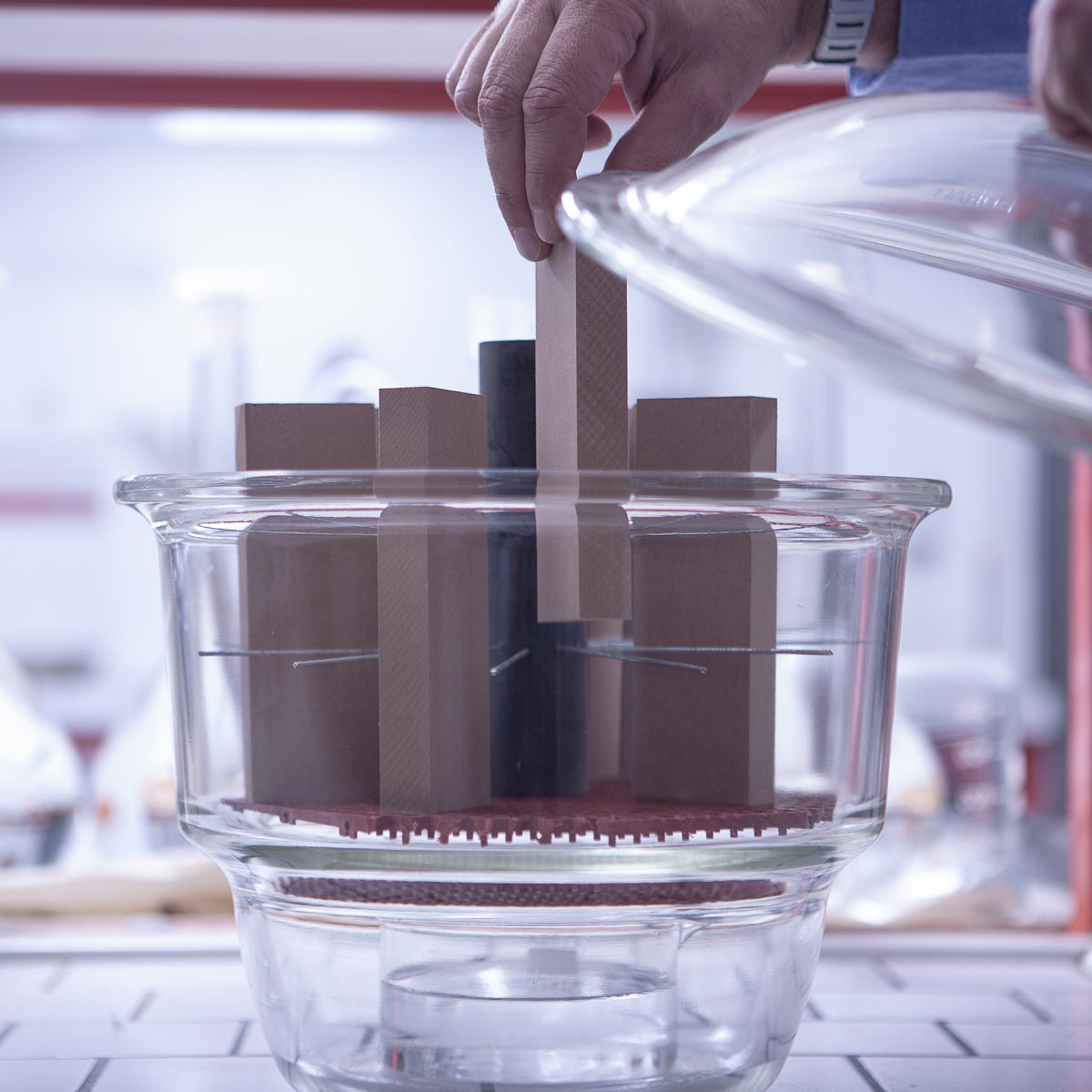In the case against the German federal government regarding the unilateral change to formaldehyde limits, Fantoni, on behalf of itself and seven other companies, has presented its rebuttals at the court in Cologne.
The case was filed last spring to contrast the German regulation limiting the free circulation of products within the European Union, also criticised by the European commissioner for the internal market, Thierry Breton. Fighting to restore equal regulations together with Fantoni, and with the support of Federlegno Arredo association, are the Italian companies Frati, Saib, Saviola, Arper, Panguaneta and Belgium’s Unilin.
The rebuttals, submitted by studio Melchers of Frankfurt, refer to a “detailed expert opinion’’ written by a top German scientific expert, professor Rainer Marutzky, who has been closely involved in the drafting of the most in-depth studies in the analysis of formaldehyde emissions. The document highlights the incompatibility of the limits introduced by Germany from 1 January 2020 – which, furthermore, were not even reported to the European authorities before being adopted – with standard EN 16516, and the lack of the necessary conditions for the introduction of new rules. It also refutes the argument given by Germany in court on the non-obligatory nature of the new limits, given that they were included in the German Chemical Prohibition Ordinance.
The documentation submitted by the plaintiffs also highlights how the German standard halves the existing limits and represents an unacceptable restriction for products that have already attained the CE mark, produced in European countries, and which can now no longer be freely sold in Germany, meaning a failure to uphold the principles of free circulation of goods.
Furthermore, in November similar legal proceedings were brought by the Swiss company Kronoswiss against the German Federal States of Baden-Württemberg and Saxony, where the groundlessness of the toxicological motivations was ruled, thereby invalidating the introduction of the new limits on VOCs (volatile organic compounds).
“A free-for-all full of asymmetrical, unilateral decisions,” emphasises Paolo Fantoni, who is also chairman of the European Panel Federation (EPF). “Not only does it generate problems for European producers in their sales to Germany and leave the doors open for the importation into the rest of the Union of products from outside Europe that do not comply with any parameters, it also generates confusion for consumers. For this reason we asked the EU some time ago to intervene and ensure uniformity of regulations by introducing a unified minimum category for formaldehyde throughout the 27 member states.”
The petitioning manufacturers now intend calling Tapani Mikkeli as a witness. The Head of Sector for Sustainable Construction at the European Commission’s Directorate General DG Grow is a particularly central figure in the future of sustainable construction so strongly endorsed by the president Ursula Von Der Leyen in her State of the Union address.
Sheet – Formaldehyde limits
The panels produced in Europe are used in furnishing, construction, packaging and many other sectors. Standard EN 13986 divides formaldehyde emissions into two categories: E2 and E1. The second, lower emission rate (0.1 ppm – parts per million – as recommended by the World Health Organisation), was adopted by companies belonging to the European Panel Federation (EPF) back in 2007. The Federation intends to push for a precautionary reduction, based on the recent restriction report from the European Chemicals Agency (ECHA).
In January 2020, Germany unilaterally introduced an emissions limit set at half of emission class E1, calling it E0.5, on all products brought into the country.

